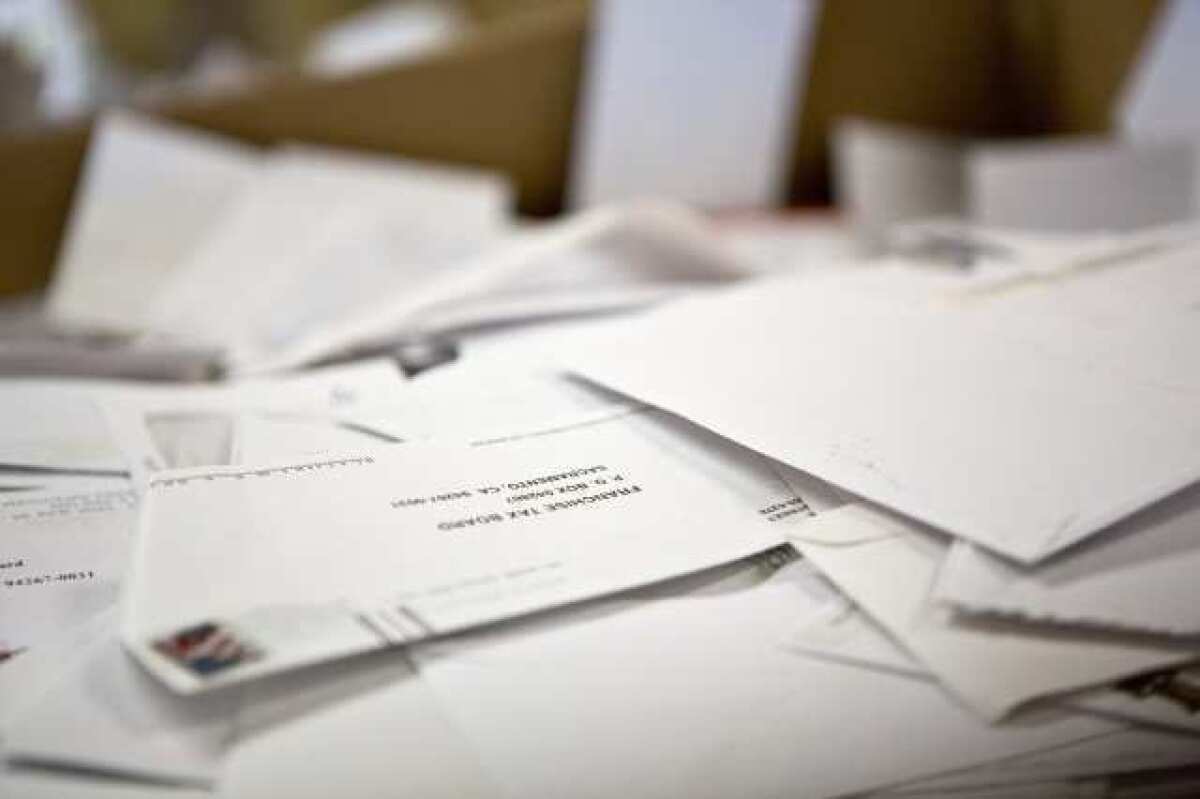Analysts see $1.1 billion more available for spending

Large boxes full of already opened and emptied envelopes sit at the Franchise Tax Board before being recycled in Sacramento.
- Share via
Reporting from Sacramento — The battle lines in the annual tug-of-war over the state budget became clear on Monday evening, when legislative analysts said there would be $1.1 billion more revenue available for discretionary spending than Gov. Jerry Brown has estimated.
The higher projection is sure to be used as fodder by Democratic lawmakers who want more money for government services. Brown has usually sought to tamp down the demand for additional spending by insisting on more conservative revenue estimates.
However, as California’s economy continues to grow and the stock market remains strong, revenue has generally reached the higher projections released by the nonpartisan Legislative Analyst’s Office, which provides budget advice to lawmakers.
An additional $1.1 billion is relatively small when compared with the $115 billion in general fund spending that Brown has already included in his latest budget proposal, which was released last week. But it would be enough to pay for the additional child care services that some lawmakers want, or provide public healthcare to immigrants who are in the country illegally.
The analysts reached their conclusion by estimating that California will receive $3.2 billion more revenue than Brown expects, close to 3% higher for the fiscal year that begins July 1.
About $660 million would be directed to schools and community colleges by the state’s school funding law.
Another $1.5 billion would be set aside for debt payments and a deposit in the state’s rainy-day fund, the result of a constitutional amendment approved by voters in November.
Once those funds are diverted, that would leave roughly $1.1 billion available to be spent however lawmakers and the governor decide, according to the analysts.
It’s roughly what Senate Budget Chairman Mark Leno (D-San Francisco) was aiming for when asked last week.
“There is still a huge need for child care, for early care and education, for other aspects of our social safety net,” he said.
Follow @chrismegerian for more updates from Sacramento.
More to Read
Sign up for Essential California
The most important California stories and recommendations in your inbox every morning.
You may occasionally receive promotional content from the Los Angeles Times.














